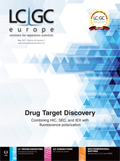International Symposium for High-Performance Thin-Layer Chromatography (HPTLC 2017)
The International Symposium for High-Performance Thin-Layer Chromatography (HPTLC 2017) will take place in Berlin, Germany, 4–8 July 2017.
Photo Credit: canadastock/Shutterstock.com

The International Symposium for High-Performance Thin-Layer Chromatography (HPTLC 2017) will take place in Berlin, Germany, 4–8 July 2017.
Progress and innovation are rarely found on the well-trodden path of a known scientific routine, according to the organizers, and inspiration comes from the cross-pollination of ideas from multiple fields and institutions. It is this spirit of science that the organizers seek to evoke at HPTLC 2017. Visitors can see firsthand the continuing evolution of highâperformance thin-layer chromatography into a modern and powerful tool with broad applicability throughout laboratory science.
If you are interested in what HPTLC could do for your laboratory, or simply want to update your understanding of methods using this technique, then HPTLC 2017 is the venue for you. The symposium showcases the most up-toâdate research methods with the latest proven applications, highlighting recent instrumental advances as well as advances in automation and data analysis. A series of advanced training courses in cutting-edge techniques are also available, along
with a social programme to promote networking and contact with thought leaders.
Food chemists can obtain 30 ZFL credit points when visiting HPTLC 2017. The AK Separation Science of the GDCh division Analytical Chemistry offers funding for poster presenters. Last minute poster presentations will still be accepted and included in the book of abstracts.
E-mail: info@hptlc.com
Website: www.hptlc.com

Best of the Week: Food Analysis, Chemical Migration in Plastic Bottles, STEM Researcher of the Year
December 20th 2024Top articles published this week include the launch of our “From Lab to Table” content series, a Q&A interview about using liquid chromatography–high-resolution mass spectrometry (LC–HRMS) to assess chemical hazards in plastic bottles, and a piece recognizing Brett Paull for being named Tasmanian STEM Researcher of the Year.
Using LC-MS/MS to Measure Testosterone in Dried Blood Spots
December 19th 2024Testosterone measurements are typically performed using serum or plasma, but this presents several logistical challenges, especially for sample collection, storage, and transport. In a recently published article, Yehudah Gruenstein of the University of Miami explored key insights gained from dried blood spot assay validation for testosterone measurement.
Determination of Pharmaceuticals by Capillary HPLC-MS/MS (Dec 2024)
December 19th 2024This application note demonstrates the use of a compact portable capillary liquid chromatograph, the Axcend Focus LC, coupled to an Agilent Ultivo triple quadrupole mass spectrometer for quantitative analysis of pharmaceutical drugs in model aqueous samples.